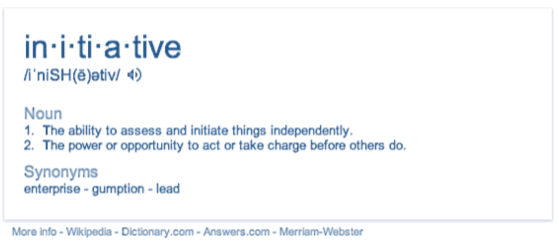A merry-go-round doesn’t go round without the operator, the maintenance guy, the electrician, the power plant staff, etc. For everything and everything you have experienced, currently experience and will experience in the future, there are people making it happen. Someone somewhere did something so that you can experience what you are currently experiencing.

Source: TibetanBuddhistAltar.org
Nothing ‘just’ happens. There is always an action, preceded by a decision, which results in the effect-whatever is happening. So many people forget that or get so used to the way things are that they are no longer conscious of this. Things don’t just happen out of nothing. A question is posed for someone to respond. Menus are made available for a dish to be chosen. These things are ‘invisible’ to the client, the more invisible it is the better the client experience.
The challenge with this ‘invisibility’ is when actors-employees and staff-don’t see it too! Like clients, they come to expect that things will ‘just happen’ with minimal action on their part. These things that should be ‘obvious’ are so well camouflaged that even team members can forget that they have a hand in it. That without their decision or action, mistakes would happen and the invisible would be made visible in a bad way. So while it’s obvious or common sense to you, it’s not to others. I’ll say it again, THINGS DON’T JUST HAPPEN!
It thus falls to the leaders in the organization to make visible to team members what is invisible (and should remain invisible) for the client. How do you do that?
1. Don’t assume what is known just because your team members have done things before, been in the company for so long, are really great at their job, etc. Ask and ask again. Make sure it’s clear to every single member of the team, every single time.
2. Don’t take details for granted. Every aspect of the customer experience matters. EVERY SINGLE THING. You and your team have to be specific, go down to the smallest and tiniest detail and make sure it gets done right every single time. It only takes one loose thread for a tapestry to unravel.
3. Don’t dictate the experience. If you simply tell your team what you want to happen they’ll make a list of tasks to accomplish and miss the reason why these tiny tasks matter. It later becomes easy to short-cut things and leave this out. Disparate details are often forgotten…but crucial highly important ones-rarely. A better way is for the person himself to visualize the experience and make note of the disparity between the visualization and the present.
4. Do ask questions. Make them think for it. Have them describe and articulate the experience themselves-connect their task to those of the team. You can do this by asking questions: What would be the ideal experience? How would it go? What would it feel like? Follow numbers 1-3 – otherwise your questions will be rhetoric or worse, you’ll just answer them yourself.
5. Do be patient. You’re introducing a new way of thinking and prioritizing to your team. It might take a while for them to get the hang of it – but once they do then they’ll perform better and more independently. They will also have confidence in making decisions.
6. Do encourage scenarios. There’s always something that doesn’t happen according to plan-when on the spot decisions have to be made. To those with experience and confidence, the obvious answer comes by easily but for those with less – the options can be overwhelming. What-if scenarios help mentally plan you for when things go wrong. This way you’ll have a schema you can fall back on if something does happen.
The great benefit of this is that clearly articulating and visualizing the ideal experience is 90% determining the necessary action points, classifying it’s importance as well as prepare for contingencies. All that’s left is to jot down tasks and things to do next.
So before you get frustrated about what’s so ‘obvious’ think again…it’s probably just obvious to you.
I’d love to hear if this works for you! Email me: blogsbyguita@gmail.com






